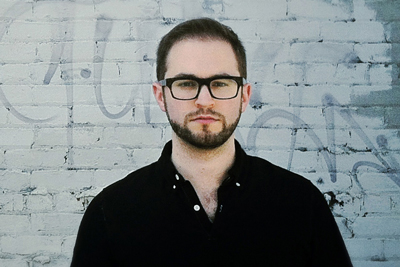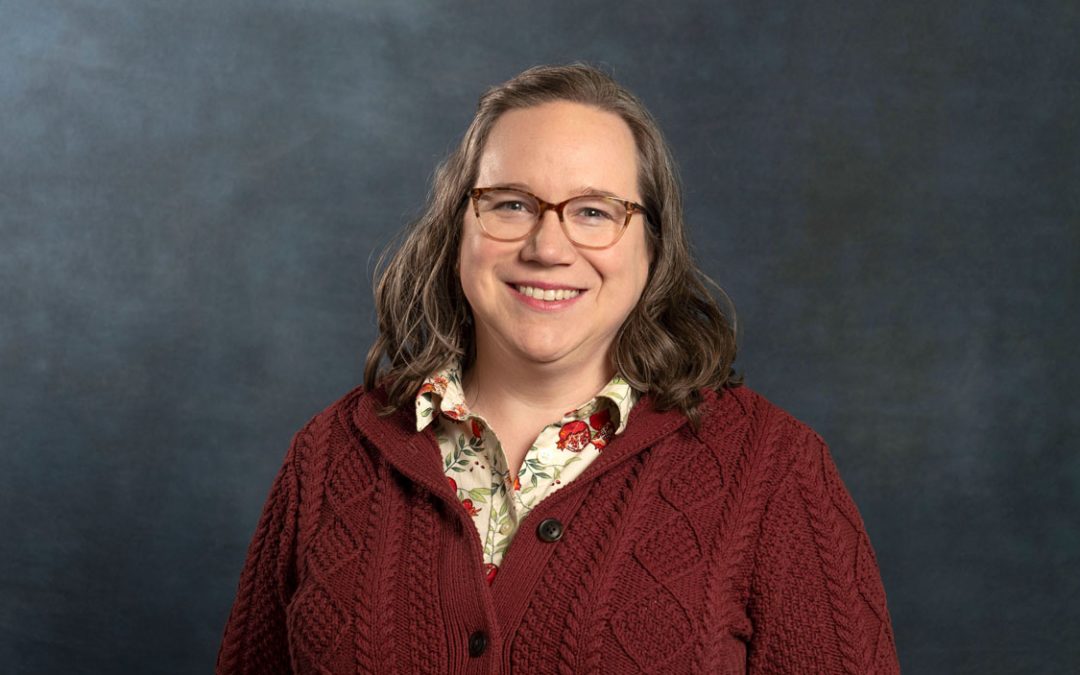
Los Angeles-based writer and director Julian Higgins is working on a film adaptation of the novel "The Inverted Forest" by John Dalton, director of the MFA in Creative Writing program at UMSL.
Los Angeles-based director and writer Julian Higgins has emerged as a young talent within the film industry. He’s received wide acclaim for his short film “Thief,” including a 2011 Student Academy Award, and his turn directing an episode of the popular television show “House” in its final season. He’s next looking to make his feature-film directorial debut with a possible adaptation of the novel “The Inverted Forest” by John Dalton, director of the MFA in Creative Writing program at the University of Missouri–St. Louis.
Higgins, a native of the Northeast U.S., was in the midst of only his second trip to the Midwest and first visit to St. Louis when UMSL Daily caught up with him. He will speak at 12:15 p.m. Oct. 15 in 402 J.C. Penney Building/Conference Center at UMSL as part of The Center for the Humanities’ Monday Noon Series.
Higgins plans to talk filmmaking, the creative process and how to break into a career in the arts. But first, he chatted with UMSL Daily about early success, adapting Dalton’s “The Inverted Forest” for the big screen and what it takes to get to where he is today.
You directed an episode of “House” during its last season. How did that materialize? And how did your success with your short film “Thief” play into it?
It was a direct result of the film (“Thief”), which was a nice thing in Hollywood, frankly. One of the first events for the film was the College Television Awards, which are informally known as the student Emmys. It’s really a television-oriented event. But it’s for student work from all over the country. They have a category for short film – narrative film. We won the best drama and best director award at that event. That was the first event that happened with the film. And the presenter of the best director award at the College Television Awards was Greg Yaitanes who was the producing director of “House.” So I met him when he gave me that award. We talked and that relationship started from there. We met a few times, he invited me to shadow him on the show and I ended up staying for almost five months. And then, as a result of that relationship developing over that time and him seeing that I was ready for the shot, he gave me that episode.
Has the episode you directed for “House” led to further opportunities?
Everyone was telling me not to get my hopes up. It’s hard to get an episode of television. It’s pretty much impossible for someone my age and my level of experience to direct a show at that level. So that alone has opened up a lot of doors for me in the television world. And also it’s made me much more viable to do a first feature of some kind. I already had a feature agent, but now I have television agent and things have sort of moved quickly since then because of the heat that was generated from that.
Your short film “Thief” has an interesting plot involving Saddam Hussein during his time on the run and an encounter with an acquaintance from much earlier in his life. What inspired you to write and direct this film?
In 2003 when Saddam Hussein was captured, I read about it in Newsweek and I just thought it was a very interesting character in a very interesting place – a dictator who has absolute power and then loses it overnight and what that experience is like for a human being. And then to think about what Saddam Hussein was doing in those months when no one knew where he was when he was driving around the country on his own on the lam, really. I just thought that would be a fascinating character to explore in a movie. I didn’t know what the story might be. When I went to the American Film Institute and southern California looking the way it does, I actually had an opportunity to finally make that movie in a place that would work to set the movie in. I’m from the Northeast, so there wasn’t really a place to make that movie. And I just figured I would go for it. I started doing a lot of research and that’s when the story really came together the way it does in the movie.
How did you come to be involved with “The Inverted Forest” by John Dalton?
I read about “The Inverted Forest” last winter. The Daily Beast put out a list of the best books of 2011 that the New York Times book review missed, which is the ideal list for someone like me to be reading. Optioning a piece of work and adapting it is a great way of getting a project going. Someone in my position couldn’t get a giant book. And I’m not necessarily sure I would want it. But I read the description of (“The Inverted Forest”). The subject matter really called out to me. And it sounded like a book I was going to like. So I went to a book store and got it, and it exceeded my expectations. I just really fell in love with it and reached out to (Dalton) with a letter. Six months later, I’m (in St. Louis).
How did the novel appeal to you as a prospective film?
First of all, it’s absolutely beautiful writing. And I just really like reading gorgeous writing. On top of that, it’s the kind of story I’m interested in. It’s about people on the margins who consider themselves outsiders or feel like outsiders. You know, they’re trying to find their place in the world and it’s a small, very human story and I just think it felt like a great first film for me that’s character driven. It’s a very unique group of characters. I’m really drawn to sort of loners and outsiders and telling stories about trying to find your place in the world. It really just called out to me in that way. I think the small canvas is where you can best get at the big ideas. And I think it’s such a small intimate, character-driven story. That can be closely explored in a movie. It’ll be an independently made film, I’m sure. But it offers me a very rich palette to work with.
What’s next for “The Inverted Forest”?
John and I have been figuring out the details of the option for a few months now. It’s about to happen. I’ve been outlining, and he and I have been talking about it. I’m hoping that I will have a draft in pretty good shape by the end of the year – the idea being to make it next year.
Any words of advice to aspiring filmmakers?
(Becoming a professional filmmaker) is much more possible than people would lead you to believe. I think, really, the important thing is to practice. I had the luxury of realizing in middle school that I wanted to make movies. So I had been practicing for years and years, making little projects and just shooting all the time. By the time I got to college, I already had a lot of practice under my belt. I really think it all comes down to the material in the end. You know, there’s a lot of politics and it’s who you know and blah, blah, blah. But you can know everybody and not have good material and never go anywhere. If you know this is what you’re interested in, you should just get a camera and start shooting stuff, experimenting and practicing.
Learn more about Julian Higgins at his website or by following him on Twitter.
Click here or below to watch a trailer for Higgins’ acclaimed short film “Thief.”
Click here or below to watch a video about Higgins’ year after winning a Student Academy Award.














